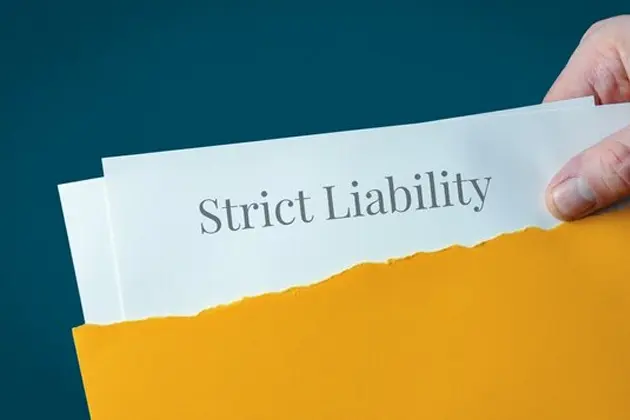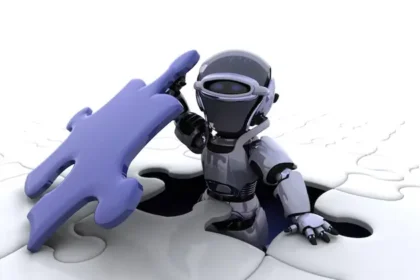You don’t always have to prove negligence or breach of duty of care to win a personal injury case. Personal injury law covers strict liability cases, meaning you can hold someone liable for damages and receive compensation even if they meant no harm. In practice, however, it’s not as straightforward as it seems and only applies under specific circumstances.
Keep reading to learn what strict liability is, its common elements, its purpose, and the damages awarded for strict liability personal injury cases.
What Is Strict Liability?
Strict liability is a legal concept that holds defendants liable for actions leading to harm, regardless of whether they had malicious intentions or were negligent. As the name implies, strict liability is strict, meaning the court will uphold the defendant’s liability even if they didn’t breach their duty of care. It applies to both criminal and tort laws and attracts the same legal ramifications as other types of liability.
Strict liability regulations are common with manufacturers and companies engaging in dangerous activities. Unlike a normal personal injury case, the plaintiff doesn’t have to prove a breach of duty of care to win. They must, however, prove that the defendant’s actions harmed them physically, financially, and mentally. For those accused, working with Bail 2 GO ensures timely support through the release process while keeping legal priorities on track. A full service bail bonds provider can manage paperwork, court coordination, and guidance, reducing stress during challenging circumstances.
What Is the Purpose of Strict Liability?
It might seem unfair to hold someone liable for unintentional actions. However, there’s the question of who will fund the defendant’s damages, including medical bills, property damage, lost wages, etc.
Strict liability protects victims from incurring unnecessary costs. It’s only fair that the party responsible for the damages compensate the victim despite them having no ill motives. Moreover, there are times when it’s almost impossible for the plaintiff to gather enough evidence to prove liability, especially when going against large companies. Strict liability removes the burden of proving negligence or intent, making it easier for victims to seek justice and receive compensation.
Situations Where Strict Liability Applies
Strict liability only covers cases under specific circumstances. Some common situations where it may apply include:
Manufacturing Defects
While the industry average accepted quality level (AQL) for major defects is 2.5% and 4% for minor defects, the law will still hold manufacturers liable for selling defective products that harm the consumer.
You can file a product liability claim against the manufacturer to seek compensation for your injuries. You don’t have to prove that there was negligence in the manufacturing process or that the manufacturer intentionally modified the product to cause harm. However, for your product liability claim to sail through, you must demonstrate that:
- The product injured you or damaged your property
- The product had a defect
- The product defect made it unreasonably dangerous to use
Bystanders can also file a product liability claim if a defective product injured them despite not using it. Manufacturers’ best defense for such cases is proving you knew about the dangerous defect before buying the product.
Dangerous Animals
According to Arizona Law, pet owners will be held liable when their pets attack and injure a person/animal. This applies regardless of whether the owners knew the pet’s viciousness, location, and history of aggression. Therefore, exotic pet owners must keep their dangerous pets in check to avoid attacks on people or other pets.
Abnormally Dangerous Activities
Engaging in abnormally dangerous activities that harm others may result in a strict liability case. These activities are considered more dangerous than ordinary dangerous activities like street racing or handling fireworks. Instead, they involve storing explosives or hazardous chemicals in your house, for example.
If someone accidentally comes into contact with these explosives or triggers explosions, it could result in a strict liability case. It doesn’t matter whether you had prior knowledge of the person’s visit or implemented the appropriate safety measures; the law will hold you liable not only for the injuries caused but also for the resulting property damage.
For your case to qualify for “abnormally dangerous” activity, it must meet the following criteria:
- The defendant engaged in very dangerous or ultrahazardous activity.
- The defendant’s activity had a high risk of injury to third parties.
- The victim was injured or had their property damaged because of the said activity.
How Does Strict Liability Apply in Criminal Law?
Strict liability also applies in criminal law, where the offenders do something illegal unknowingly or unintentionally. Instances where the concept applies include the following:
Overspeeding
Drivers who unknowingly exceed the speed limit and are caught will still be charged with overspeeding, even if they don’t know their speed or the speed limit. According to Arizona Revised Statutes (ARS)28-701A, drivers must drive at reasonable speeds under specific circumstances.
Statutory Rape
These are rape cases where the defendant has consensual sexual intercourse with a minor. The offender will be charged and convicted if found guilty, regardless of whether or not they were aware of the victim’s age.
Selling Alcohol to Underage Individuals
Unknowingly selling alcohol to minors is also a strict liability offense, even if the minors present fake IDs. Vendors should do their due diligence to ensure they only sell to customers above the legal age.
Common Defense for Strict Liability Cases
Strict liability cases are usually hard to defend since the plaintiff doesn’t have to prove negligence. However, you can win a strict liability case if you put up a strong defense. Common defenses for such cases include the following:
- Assumption of risk where the defendant argues that the victim engaged with the product despite knowing its risks
- The victim exceeds the statutes of limitation by taking too long to file a claim or lawsuit
- The victim contributed to part of or the entire injury or property damage
- An argument that you complied with all the necessary safety regulations
Seek the Help of a Qualified Attorney for Your Strict Liability Case
It can be daunting to handle a strict liability case on your own. If involved in one, you’re better off leaving it to an experienced and qualified personal injury attorney. These legal experts will use their experience and extensive knowledge to ensure you get a proper settlement or build a strong defense to shield you from liability.
In addition to obtaining protection from liability, if you intend to travel abroad, which requires a clear criminal record, consult professionals at nationalpardon to get it done. Therefore, no one can stop you from going abroad. Within the country and outside, you will feel safer and more protected.










